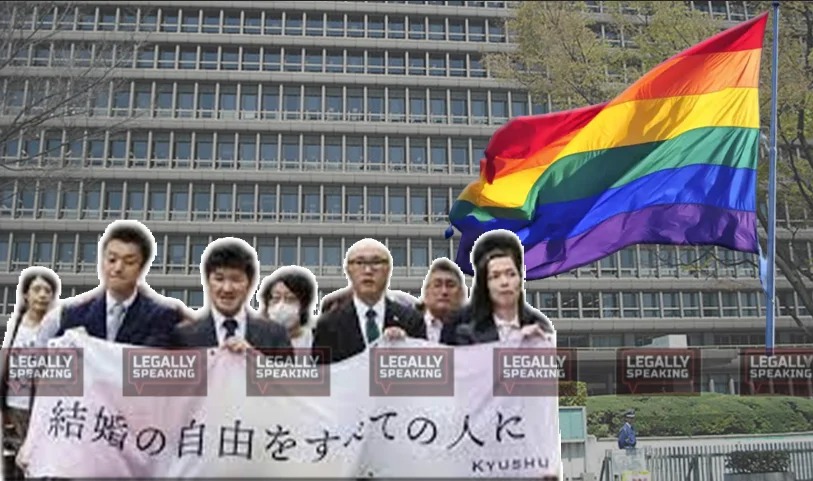
The Fukuoka District Court in Japan issued a ruling on Thursday stating that the prohibition of same-sex marriage was “in a state of unconstitutionality.”
Although the ruling did not fully meet the expectations of marriage-equality activists, it marked a significant development. This decision followed another district court ruling the previous week, which also deemed the denial of same-sex marriage as unconstitutional.
These rulings have raised hopes within the LGBTQ community in Japan, particularly as the country currently lacks legal protection for same-sex unions, making it the only Group of Seven nation without such provisions.
In a complex ruling that did not meet the expectations of marriage-equality activists, the Fukuoka District Court in Japan has declared on Thursday that the prohibition of same-sex marriage is “in a state of unconstitutionality.” This significant decision follows another district court’s ruling a week prior, which also deemed the denial of same-sex marriage as unconstitutional.
These rulings have instilled hope within Japan’s LGBTQ community, especially since the country remains the only Group of Seven nation without legal protection for same-sex unions.
To date, there have been five court rulings on same-sex marriage across Japan. Two of these rulings have declared the bans on same-sex marriage as unconstitutional, while one upheld the ban but recognized that the absence of legal protection for same-sex families violates their human rights. These legal developments continue to shape the discourse surrounding same-sex marriage in Japan.
The lawyer representing the plaintiffs mentioned that the specifics of the ruling were still under verification, but he believed it would likely resemble the decision made by the Tokyo court. This ruling was perceived as a positive development by activists advocating for marriage equality.
Despite public opinion polls indicating approximately 70% support for same-sex marriage, the ruling party led by Prime Minister Fumio Kishida, known for its conservative stance, opposes it.
In February, Kishida dismissed an aide who sparked outrage with his remarks suggesting that people would leave Japan if same-sex marriage was permitted and expressing his reluctance to reside near lesbian, gay, bisexual, or transgender couples.
Despite mounting pressure from other G7 nations, particularly the United States, in the lead-up to Japan’s hosting of the G7 leaders’ summit, Kishida has refrained from taking a definitive stance on the issue of same-sex marriage.
Prominent business organizations have emphasized the need for change, asserting that without embracing diversity, including LGBTQ rights, Japan’s position as the world’s third-largest economy may be compromised in the global arena.
While more than 300 municipalities across Japan, which represent approximately 65% of the population, permit same-sex couples to enter partnership agreements, the rights afforded to them are limited. These couples are unable to inherit each other’s assets, lack parental rights over each other’s children, and face uncertainties regarding hospital visitations.
Kishida’s administration had pledged to enact a law promoting “understanding” of the LGBTQ community before the summit. However, opposition from conservative factions has significantly delayed its progress, resulting in a diluted version of the legislation that is anticipated to be put to a vote in the upcoming week.




